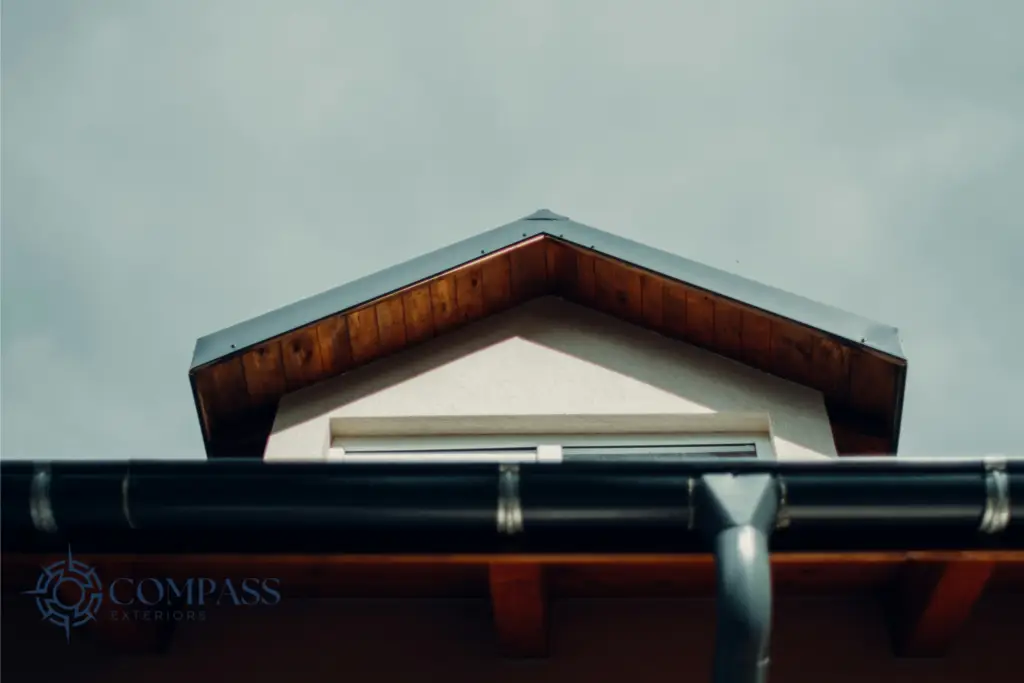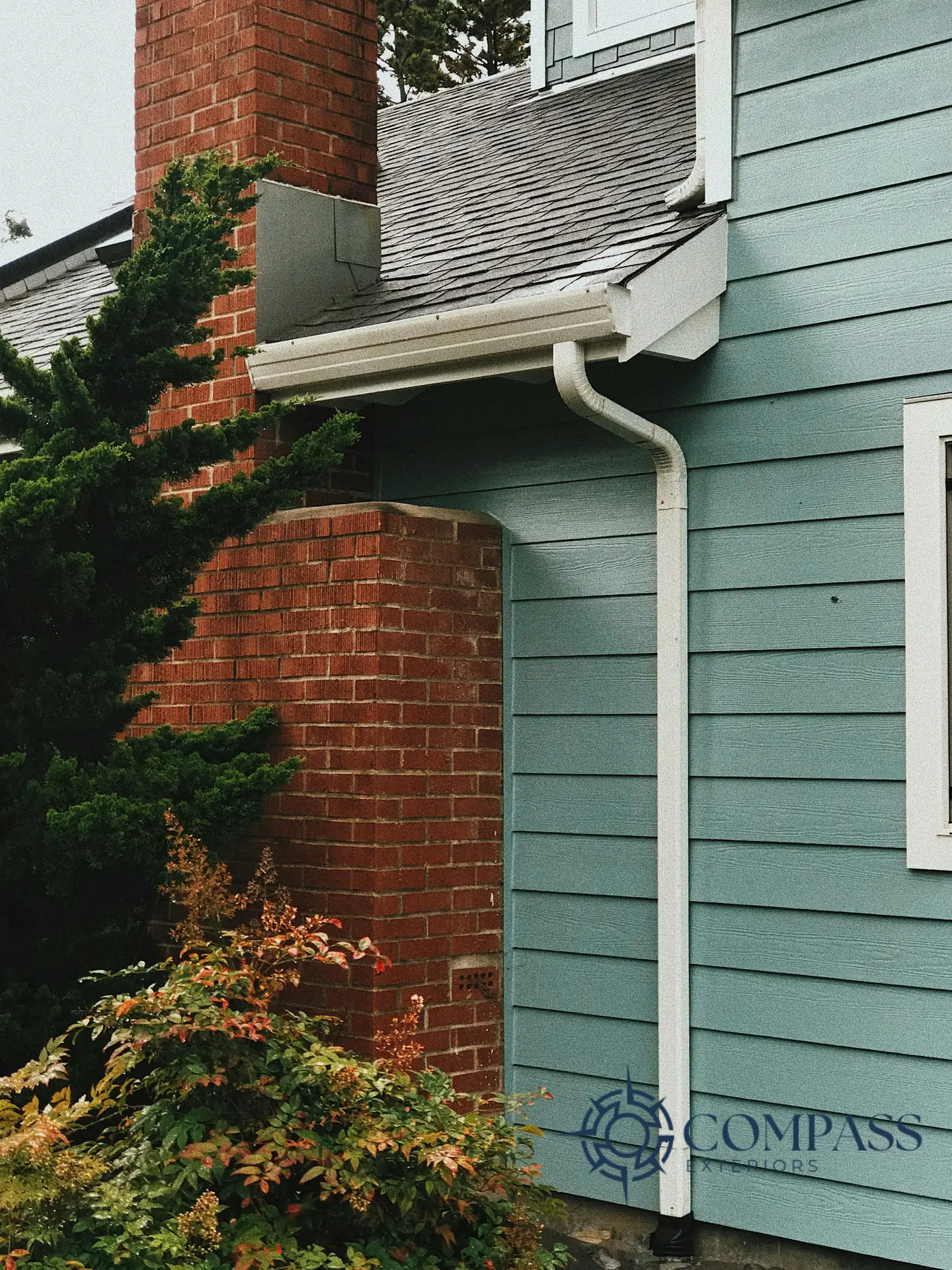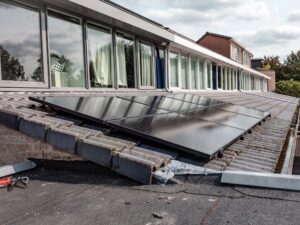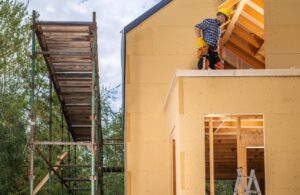Introduction: Debunking the Myth of “No Maintenance” Gutter Guards
While gutter guards are often marketed as “no maintenance” solutions, it’s essential to set realistic expectations. True, these systems can significantly reduce the need for frequent gutter cleaning by preventing leaves and debris from entering. However, no gutter guard system is entirely maintenance-free. Optimal performance and longevity are achieved through the combination of durable materials and professional installation. This introductory guide will explore how certain gutter guard designs offer lower maintenance demands while enhancing the functionality of your home’s drainage system.
Understanding Gutter Guards: Function and Maintenance
Primary Function of Gutter Guards: Gutter guards serve a crucial role in home maintenance by preventing debris from clogging the gutters. This protection helps minimize the risk of water damage to your home’s foundation and landscaping and reduces the need for regular gutter cleaning.
Maintenance Requirements: Despite their protective benefits, gutter guards require some upkeep. Periodic inspections and cleanings are necessary to ensure they are free of small debris and functioning properly. Additionally, during heavy storms or seasonal changes, a more thorough check might be needed.
Common Points of Failure: The effectiveness of a gutter guard can be compromised by several factors. Improper installation is a frequent issue, leading to gaps that allow debris to seep through. Additionally, using materials that do not withstand the local climate or environmental conditions can result in premature wear and tear. Understanding these potential failures helps in selecting the right gutter guard system and ensuring it is installed correctly.
Criteria for Reviewing Gutter Guard Systems
To evaluate which gutter guard system best fits your home’s needs, we consider four key criteria: initial cost, yearly maintenance, durability, and performance. These factors help determine not only the economic viability of a gutter guard but also its long-term value and effectiveness in protecting your home.
Initial Cost: The upfront cost of gutter guards can vary widely depending on the type and materials used. Cheaper options might seem appealing but could lead to higher maintenance or replacement costs down the line. A balanced view of cost-effectiveness is crucial when selecting a gutter guard system.
Yearly Maintenance: This criterion assesses how much care and upkeep each type of gutter guard requires annually. Some systems might need more frequent cleaning or may be more prone to damage, impacting their overall cost-efficiency and convenience.
Durability: Durability relates to how well gutter guards withstand weather conditions and time. Materials that are more resilient to your local climate and environmental stressors are preferable as they offer better long-term protection and reduced maintenance.
Performance: Performance measures how effectively the gutter guards prevent debris from entering the gutters while allowing water to flow freely. High-performing gutter guards offer the best protection against water damage and reduce the frequency of cleanings needed.
By examining these criteria, homeowners can make informed decisions about which gutter guard system will best meet their specific needs and provide the most benefits over time.
Review of Gutter Guard Types

Gutter guard systems vary in design and functionality. Below, we review five common types, focusing on their construction, operation, and how they stand up to our key criteria: initial cost, yearly maintenance, durability, and performance.
1. Mesh Gutter Guards
- Description: Made from fine metal or plastic mesh that covers the gutter, allowing only water to penetrate while blocking leaves and debris.
- Pros: Highly effective at blocking most debris; durable when made from stainless steel.
- Cons: Higher initial cost; may require professional installation.
2. Screen Gutter Guards
- Description: These guards feature larger holes compared to mesh and are typically made from metal or vinyl.
- Pros: Generally less expensive than mesh; easier DIY installation.
- Cons: Larger holes can allow smaller debris to accumulate in gutters.
3. Reverse Curve/Surface Tension Gutter Guards
- Description: Designed to direct rainwater downward while leaves and debris fall to the ground.
- Pros: Effective water management; low maintenance.
- Cons: Higher initial cost; requires professional installation for optimal performance.
4. Brush Gutter Guards
- Description: Consists of bristles that sit inside the gutter, trapping debris while allowing water to flow through.
- Pros: Easy to install; inexpensive.
- Cons: Debris can get caught in the bristles, requiring cleaning.
5. Foam Gutter Guards
- Description: Foam inserts that fit directly into gutters, blocking debris from entering.
- Pros: Very affordable; simple installation.
- Cons: Can deteriorate over time; may encourage mold growth if not maintained.
Comparison and Recommendations
The table below provides a succinct comparison of the different gutter guard types based on the established criteria:
| Gutter Guard Type | Initial Cost | Maintenance | Durability | Performance |
| Mesh | High | Low | High | Excellent |
| Screen | Medium | Medium | Medium | Good |
| Reverse Curve
Surface Tension |
High | Low | High | Very Good |
| Brush | Low | High | Low | Fair |
| Foam | Low | High | Low | Poor |
Recommendations:
- For heavy rainfall areas: Reverse curve or mesh guards are recommended due to their superior water handling and debris blocking capabilities.
- For areas with dense tree coverage: Mesh gutter guards provide the best protection against fine materials like pine needles.
- For budget-conscious homeowners: Screen or brush guards offer a cost-effective solution, though they may require more maintenance.
Choosing the right gutter guard involves balancing cost, maintenance needs, and performance. Homeowners should consider their specific environmental conditions and the practicality of installing and maintaining each type. For those unsure of the best option, consulting with gutter professionals like Compass Exteriors Remodeling can provide tailored advice and ensure proper installation, maximizing your gutter system’s efficiency and lifespan.
The Role of Professional Installation

Proper installation of gutter guards is crucial to their effectiveness and longevity. An expert installation ensures that guards are fitted precisely, which is essential to prevent debris accumulation and water overflow—common issues that can lead to significant damage over time. Compass Exteriors Remodeling specializes in meticulous gutter guard installation, adhering to the highest standards to avert these typical failures. By entrusting installation to professionals, homeowners can avoid the pitfalls of improper fitting, such as gaps that allow debris to pass through or misalignment that can cause water to pool and damage the roof or foundation.
Why Choose Compass Exteriors Remodeling
Compass Exteriors Remodeling stands out as a leader in home exterior solutions, offering unmatched expertise in the selection and installation of gutter guards. Our team is well-versed in assessing a home’s specific needs, considering factors like local weather conditions and foliage types to recommend the most suitable gutter guard system. We commit to using high-quality materials that enhance durability and reduce maintenance needs, ensuring that your home’s gutter system functions optimally with minimal upkeep.
Are you ready to enhance your home’s defenses against the elements? Visit our contact form or call us directly to discuss your gutter guard needs. Schedule a consultation today and take a step towards a more secure and low-maintenance home. Let us help you make informed decisions that lead to lasting benefits.











